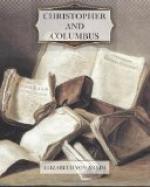He took them in a taxi to Riverside Drive, and then they walked down to the charming footpath that runs along by the Hudson for three enchanting miles. The sun had set some time before they got there, and had left a clear pale yellow sky, and a wonderful light on the river. Lamps were being lit, and hung like silver globes in the thin air. Steep grass slopes, and groups of big trees a little deeper yellow than the sky, hid that there were houses and a street above them on their right. Up and down the river steamers passed, pierced with light, their delicate smoke hanging in the air long after they had gone their way. It was so great a joy to walk in all this after ten days shut up on the St. Luke and to see such blessed things as grass and leaves again, that the twins felt suddenly extraordinarily brisked up and cheerful. It was impossible not to be cheerful, translated from the St. Luke into such a place, trotting along in the peculiar dry air that made one all tingly.
The world seemed suddenly quite good,—the simplest, easiest of objects to tackle. All one had to do was not to let it weigh on one, to laugh rather than cry. They trotted along humming bits of their infancy’s songs, feeling very warm and happy inside, felicitously full of tea and macaroons and with their feet comfortably on something that kept still and didn’t heave or lurch beneath them. Mr. Twist, too, was gayer than he had been for some hours. He seemed relieved; and he was. He had sent a telegram to his mother, expressing proper sorrow at being detained in New York, but giving no reason for it, and promising he would be with her rather late the next evening; and he had sent a telegram to the Clouston Sacks saying the Twinklers, who had so unfortunately missed them in New York, would arrive in Boston early next afternoon. His mind was clear again owing to the determination of the twins to go to the Sacks. He was going to take them there, hand them over, and then go back to Clark, which fortunately was only three hours’ journey from Boston.
If the twins had shown a disinclination to go after the Sacks who, in Mr. Twist’s opinion, had behaved shamefully already, he wouldn’t have had the heart to press them to go; and then what would he have done with them? Their second and last line of defence, supposing they had considered the Sacks had failed and were to be ruled out, was in California, a place they spoke of as if it were next door to Boston and New York. How could he have let them set out alone on that four days’ journey, with the possibility of once more at its end not being met? No wonder he had been abstracted at tea. He was relieved to the extent of his forehead going quite smooth again at their decision to proceed to the Sacks. For he couldn’t have taken them to his mother without preparation and explanation, and he couldn’t have left them in New York while he went and prepared and explained. Great, reflected Mr. Twist, the




